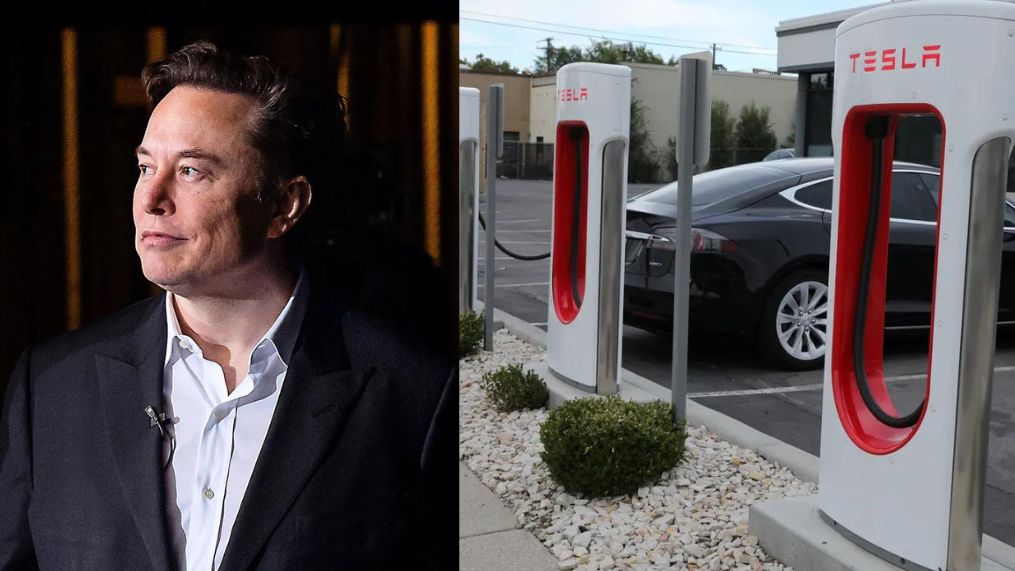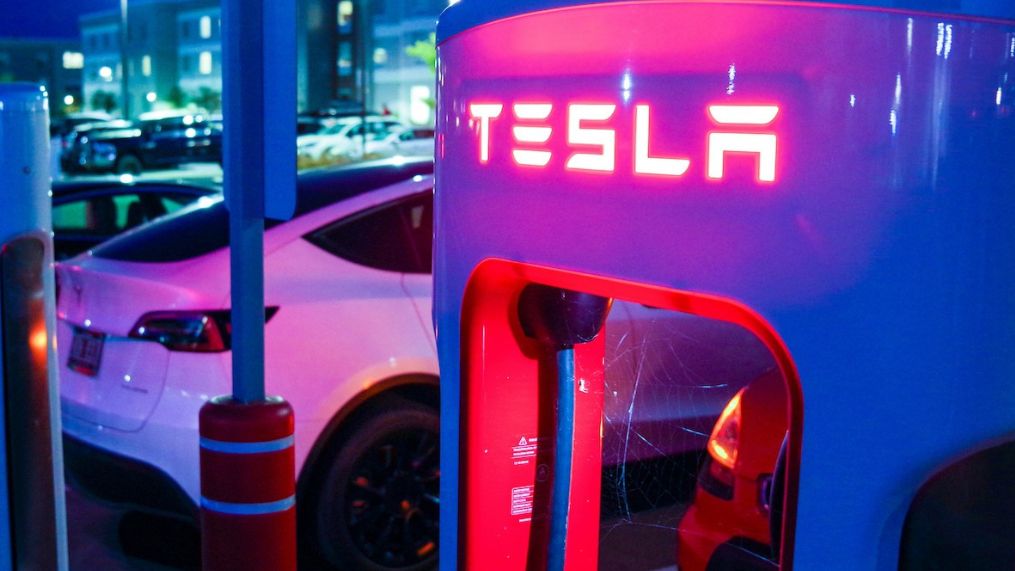Elon Musk‘s recent restructuring of Tesla‘s electric vehicle charging team has sent shockwaves through plans to expand fast-charging stations, potentially derailing President Joe Biden‘s efforts to electrify U.S. highways.
The Biden administration‘s National Electric Vehicle Infrastructure (NEVI) program, aiming to enhance the country’s charging infrastructure and accelerate EV adoption, allocated $5 billion to states over five years to erect 500,000 EV chargers.
Tesla, leading the EV market and boasting the largest network of fast chargers, known as Superchargers, stood as a linchpin in this ambitious plan.
News of Tesla’s abrupt layoffs in its EV charging division has triggered concerns among charging companies. Landlords, originally partnered with Tesla for private charging projects, are now seeking alternative collaborators.
The repercussions are anticipated to extend to federal initiatives. Charging companies foresee Tesla’s potential withdrawal from the NEVI program, further complicating an already sluggish rollout.
The delay could be significant, with the need to restart the solicitation process for NEVI-funded projects, resulting in prolonged timelines for construction.

Aatish Patel, co-founder of XCharge North America, emphasized the inevitable setback to the NEVI rollout, indicating that many slated sites may not materialize within the prescribed timeframe. Reports suggest real estate entities in several states are already seeking replacements for Tesla’s involvement in charging projects.
While Tesla’s CEO Elon Musk has vowed to continue expanding the Supercharger network, albeit at a slower pace, questions linger regarding the broader implications of the company’s strategic shift.
Musk’s statements and actions in response to inquiries remain opaque, leaving the industry and federal authorities to grapple with uncertainty.
Despite reassurances from the federal Joint Office of Energy and Transportation that individual business decisions won’t hamper government-funded EV charging projects, states like Colorado and Texas, major recipients of NEVI funds, are closely monitoring the situation.
Tesla’s redirection may alter the landscape of the EV industry, potentially creating opportunities for other charging startups and the reemployment of recently laid-off Tesla personnel.
As rivals eye Tesla’s vacated projects, the industry braces for significant shifts in the charging infrastructure ecosystem.





